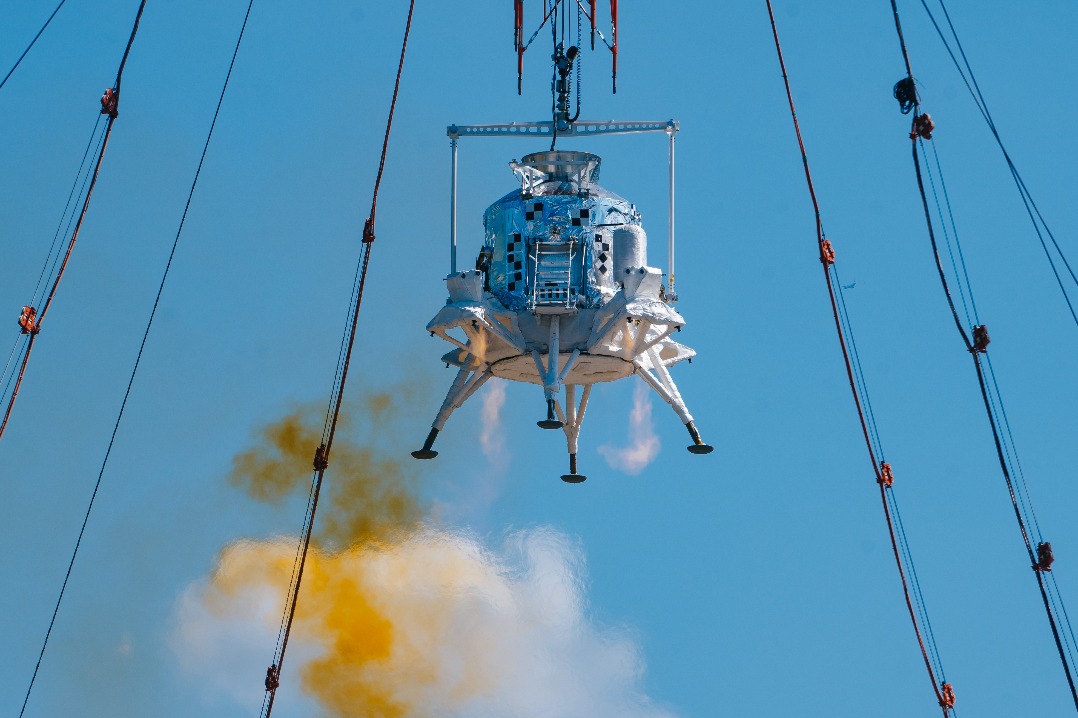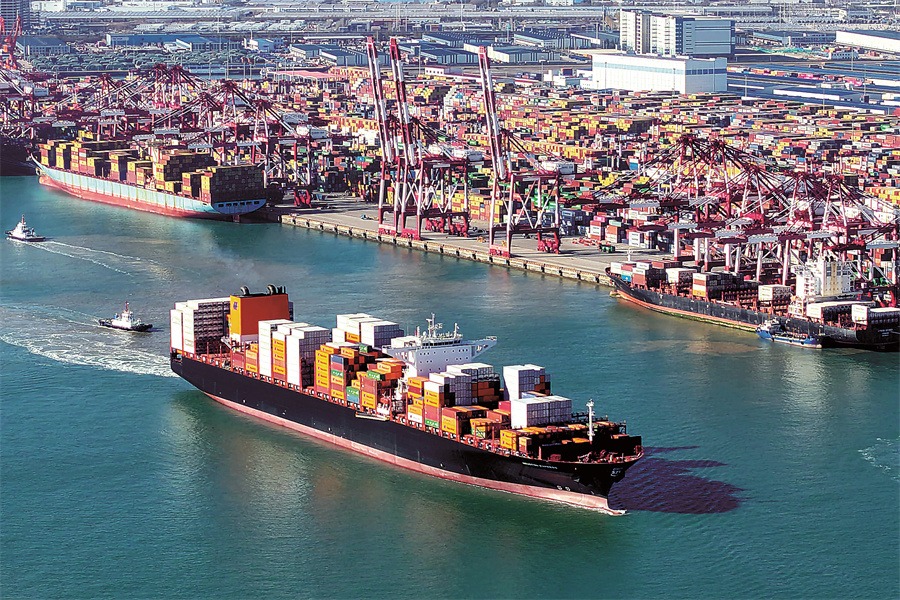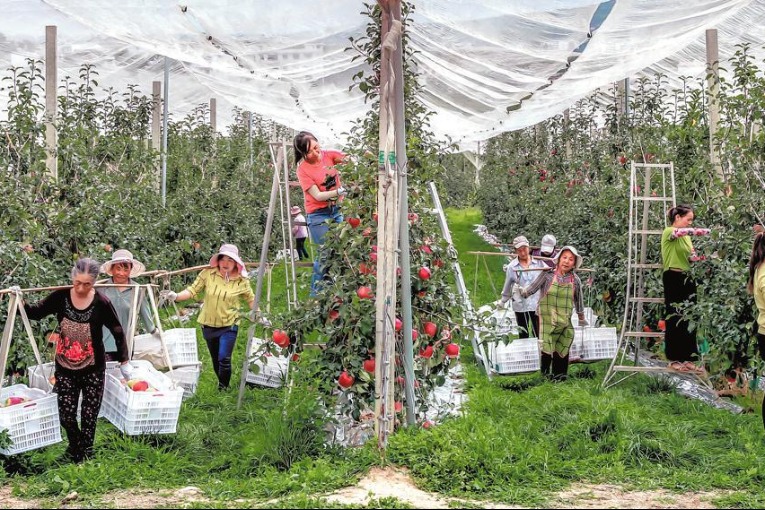Protect China's food security against geopolitical risks


The ongoing Russia-Ukraine conflict is expected to further rock global food markets. Global grain and food prices have already been rising, with the prices of wheat, corn and soybean surging at a rapid pace, because the conflict has affected food production and supply chains.
Also, wheat futures prices on the Chicago Board of Trade have surged by more than 70 percent this year, hitting a record high since March 2008, with corn and soybean futures prices rising by 30 and 25 percent respectively, both hitting record highs since 2013.
Thanks to rising grain and energy prices, overall global food prices, too, have been increasing. And in late March the UN Food and Agriculture Organization predicted food shortages are expected immediately or in the next three months in over 40 percent of the surveyed areas and cases. And rising food prices and market swings can threaten global food security, especially for those who lack provisions.
Besides, global grain production and supplies are facing obstacles. For example, the Russia-Ukraine conflict will delay the planting of crops and affect the global supply of fertilizers, which could reduce food production.
Ukraine is home to 40 percent of the world's black soil and is known as the breadbasket of Europe. Since black soil is concentrated in the central and eastern Ukraine, where the fighting has been most intense, wheat and corn farmers could miss the planting season-usually from March to May-if the military conflict continues. And production would plummet as a result.
Also, Russia and Belarus are two of the world's leading exporters of fertilizers, particularly potash fertilizer. According to the International Fertilizer Association, Russia exported 11.83 million metric tons of potash fertilizer in 2021, accounting for 23 percent of the total global exports. And if we add the fertilizer exports of Russia and Belarus, both of which face Western sanctions, more than 30 percent of the world's potash fertilizer supply would be affected.
Moreover, since natural gas is a key raw material for producing nitrogen-based fertilizers such as urea, its soaring prices will inevitably push up the production cost of fertilizers beyond Russia and Ukraine, leading to reductions in crop yields.
The Ukraine-Russia conflict has also disrupted, though partly, international logistics. On Feb 24, both Russia and Ukraine suspended commercial shipping at their respective Black Sea ports, which means the conflict poses a serious risk to the movement of ships in the Black Sea and could create food shortages for countries that rely on shipping operations to get their food supplies, especially those countries that depend on food imports from Russia and Ukraine, such as Egypt and Lebanon.
Worse, many exporters including Ukraine and Argentina have imposed some restrictions on food exports, because they fear potential grain shortage at home.
There is no doubt that global food supply faces threats. In fact, the World Food Program has warned that, if food supply continues to shrink, 2022 would prove to be catastrophic for global food security and could push more than 44 million people in 38 countries toward famine.
Given the complex and volatile international situation, therefore, China should take all measures to continue to be self-sufficient in food production and supply, and import only to meet the people's demand for different types and varieties of foods.
First, China should increase farmers' incentives, for instance, by raising the minimum purchasing prices of rice and wheat and giving subsidies to farmers who plant corn, soybean and rice, so they are encouraged to grow more grains and earn more profits.
Second, soaring energy prices including those of oil, coal and natural gas, have disrupted (and continue to disrupt) fertilizer supply worldwide, so China should strengthen its market mechanism and increase its fertilizer reserve to tide over any potential crisis.
Third, China should intensify high-tech development and apply it to the agricultural sector to boost efficiency.
Fourth, it is essential to strengthen and widen the country's seed bank and promote agricultural diversity. By growing different varieties of high-quality and traditional crops, China can become self-sufficient in seeds, especially because the seed sector has long been dominated by developed nations.
Fifth, China cannot ensure food security or increase grain production without earmarking adequate and high-quality arable land for cultivation, and maintaining an annual grain output of more than 650 million tons.
And sixth, China has to make more efforts to reduce food waste, from the production, transportation, storage and processing stages to the consumption stage. It also has to keep a close watch on the global food markets and diversify channels of import to safeguard its food security.
For instance, by closely following global grain production and trade, the authorities can timely assess the changing situations and raise the alarm in time so farmers and agricultural businesses can take steps to overcome the risks. China should also restructure imports and make them more diverse, as well as expand grain trade and enhance agricultural cooperation with more countries.
Cui Ningbo is a professor at the College of Economics and Management, Northeast Agricultural University; and Zhao Duanyang is a doctoral candidate at the same university.
The views don't necessarily represent those of China Daily. If you have a specific expertise, or would like to share your thought about our stories, then send us your writings at opinion@chinadaily.com.cn, and comment@chinadaily.com.cn.


































